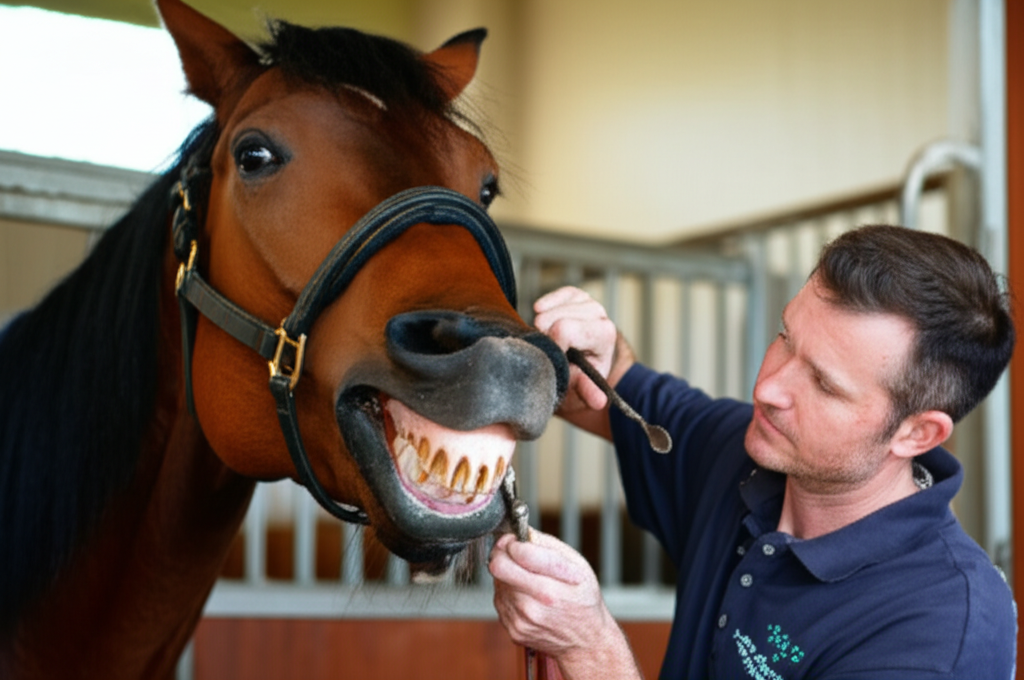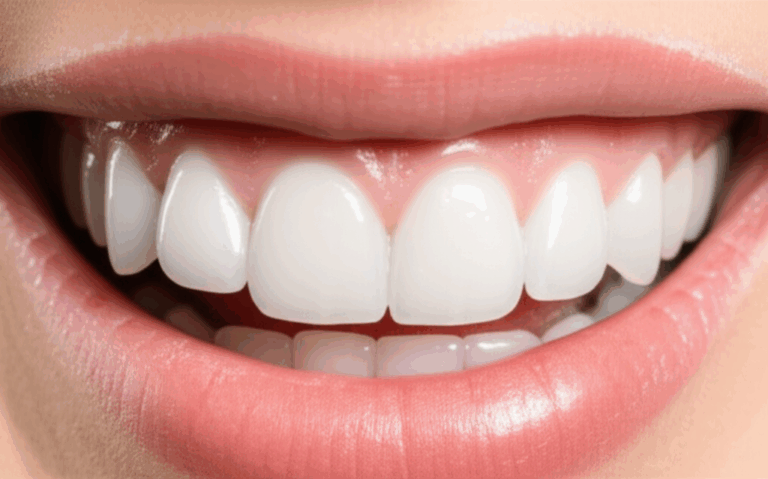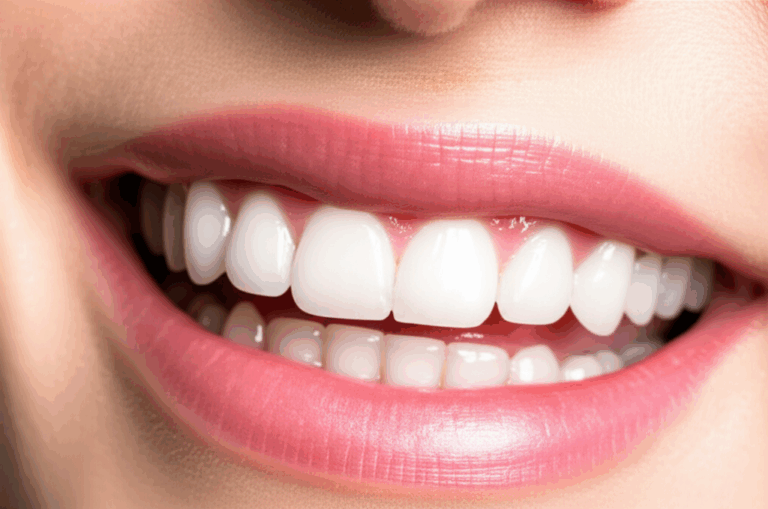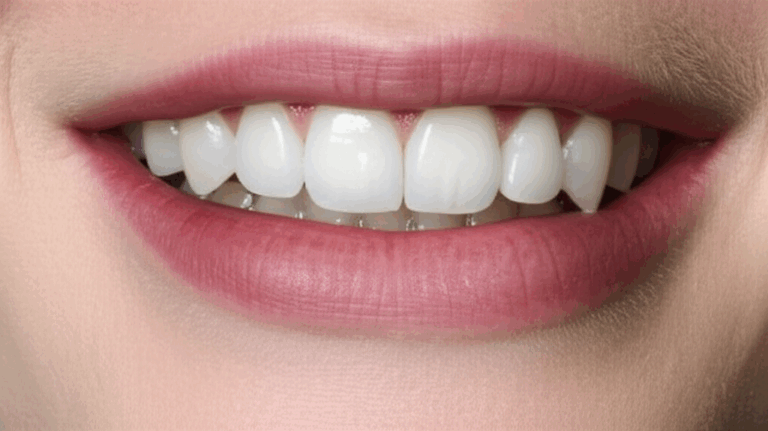
How to Become an Equine Dentist in the UK: Your Definitive Career Guide
That “Could I Really Do This?” Feeling: Let’s Start With Your Question
You might have watched someone working on a horse’s teeth—filing them down, talking softly to the horse, and checking inside its mouth like they’ve done it a hundred times—and thought, “Could I do this job? What do I need to become an equine dentist in the UK?” Maybe you love horses, want a more hands-on job, or enjoy helping animals and working for yourself.
You’re not the only one thinking about this. Lots of horse lovers wonder the same thing. It’s an exciting idea, maybe a bit scary too. If you want a clear, simple plan without lots of confusing words, you’re in the right spot. Let’s go through it together.
In This Article
- What Does an Equine Dental Technician (EDT) Really Do?
- The Step-By-Step Path to Becoming an Equine Dentist in the UK
- What Does It Cost to Qualify?
- What’s the Job Like? (Prospects, Salary, Rewards, and Challenges)
- Is This Career Right For You?
- Your Empowering Next Steps
What Exactly Does an Equine Dental Technician (EDT) Do?
Picture waking up early, putting on your boots, and heading out to a stable where horses and their owners are waiting for you. That’s an average day for an equine dental technician, called an EDT.
What you’ll do:
- Routine Checks: Looking over a horse’s teeth for sharp points, extra-long teeth, or gaps where food gets stuck.
- Filing/ Rasping: Smoothing rough edges with special hand tools or power tools, making the mouth feel better.
- Small Tooth Pulls: Taking out baby teeth or small, loose teeth (like “wolf teeth” sometimes).
- Giving Advice: Telling horse owners how to care for their horse’s teeth and when to call a vet or dentist.
- Working With Vets: Some dental jobs (especially ones using sedation or doing tooth surgery) are only allowed for vets. So EDTs work closely with vets when needed.
Common Problems Fixed:
- Sharp edges
- Overgrown teeth
- Rotten teeth, sore gums
- Broken, missing, or baby teeth left behind
Sometimes it’s easy. Some days you need lots of patience—especially with horses that are nervous. You need to be healthy and calm. You also have to care about helping both the horse and the owner!
UK Law:
A qualified EDT can do basic filing and some small extractions, but harder dental jobs are for vets only. Make sure you know what you’re allowed to do under the Veterinary Surgeons Act 1966.
The Step-By-Step Path to Becoming an Equine Dentist in the UK
How do you go from loving horses to working in their mouths? Here’s how.
1. Do You Have the Right Qualities?
Before signing up for a course, think about this. The best EDTs all have some things in common:
- Experience with horses: Comfortable and safe working around them.
- Patience: Horses can be nervous and know if you’re upset.
- Good with hands: You’ll be using tools in small spaces.
- Good at spotting things: Notice when something’s not right.
- Kind: To both horses and their worried owners.
- Physically fit: It’s hard, active work, outside in any weather.
- Business sense: Especially if you’re going to work for yourself.
If you’ve spent time around horses or at a stable, that’s a good start.
2. Get the Right Education & Qualifications
This is the serious bit. In the UK, you can’t start working as an equine dentist without the right qualification. You need to be trained properly—for safety, following the law, and for your reputation.
What Qualification Do You Need?
- Level 3 Diploma in Equine Dental Care (LANTRA):
This is the main one, known by the industry, BAEDT (British Association of Equine Dental Technicians), and most employers.
- Covers: Horse teeth, mouth problems, how to do the work, laws, safety, and lots of hands-on practice.
- Takes: 2-3 years, usually part-time, along with work and practice.
- Professional Groups:
- BAEDT (British Association of Equine Dental Technicians) – Top group.
- WWAED (Worldwide Association of Equine Dentists) – Also fine, but not as common here.
- Ofqual:
Makes sure the courses meet UK standards.
Tip: Don’t pick a course that’s not properly approved or doesn’t have hands-on practice. Always check for LANTRA and Ofqual badges.
Where Can You Study?
Some main places that offer a LANTRA Level 3 Diploma or equal training:
- Warwickshire College
- Plumpton College
- LEQDT (Liverpool Equine Dental Training)
- Equine Dental Academy
Look for:
- LANTRA and/or BAEDT approval
- Good teachers and facilities
- Lots of real horse practice, not just book study
- Chances to do work placements and have a mentor (very important!)
Main Skills You’ll Learn
- What horse teeth look like, and common problems
- Finding out what’s wrong and how to fix it
- Handling horses safely
- Talking to owners clearly
- Rules, paperwork, and following the law
3. Gaining Practical Experience & Mentorship
Classroom teaching is one thing—real horses are another! Every qualified EDT gets hundreds of hours working under supervision:
- Work shadowing: Following skilled EDTs or vet dental teams.
- Placements: Real working experience as part of most diplomas.
- Apprenticeships: Some places offer real job-learning (check UK Gov schemes or local colleges).
- Mentoring: A good mentor helps you learn, keep high standards, and deal well with clients.
You can’t miss this practical training. It makes you confident and trusted.
4. Registration and Professional Standards
Join the Register:
After you pass exams and have enough practice, apply to the Register of Equine Dental Technicians (REDT)—the official UK list of trained EDTs.
Become a BAEDT Member:
This is highly recommended. Being a member gives you advice, support, extra training, and other people to talk to.
Follow the Law:
- Only qualified, listed EDTs can do certain jobs.
- Always check for updates from the Royal College of Veterinary Surgeons (RCVS) and the law (Veterinary Surgeons Act 1966).
Keep Learning:
Doing a good job means you keep learning and work by the rules.
Investing In Your Future: Cost & Funding for EDT Training
Let’s be honest—training isn’t free. But it can be worth it, both for pay and for job happiness.
What Does It Cost?
- Course Fees:
Around £5,000 to £15,000 for the Level 3 Diploma and add-on units. Some let you pay in chunks.
- Equipment:
Basic tools (rasps, hand floats, power gear, stands, lights, and basic kit) can cost £10,000 or more.
- Insurance:
You need this for safety—£100–£300 per year.
- Professional Fees:
BAEDT or REDT fees, plus for extra training sessions later.
- Travel and Living Costs:
If you have to travel for training, placements, or exams, budget for this.
Tip: Ask courses if they do pay-as-you-go, grants, or bursaries.
Can I Get Any Help With Funding?
- Apprenticeships: Partial funding for learning while working may be offered in UK Gov schemes.
- Career Loans: Banks sometimes help with loans for job training.
- Grants and Bursaries: Sometimes from horse charities, professional groups, or colleges.
- Employer Help: Some vets or big yards may help pay for enthusiastic staff.
Career Prospects & Earnings for UK Equine Dentists
You’ve finished training—what kind of work can you expect?
Salary & Earning Potential
- Starting pay:
About £18,000–£25,000 at first, as you learn and build up trust.
- Experienced/self-employed:
£30,000–£45,000 or more. Some EDTs earn over £50,000 when fully booked and trusted.
- Visit fees:
£35–£80 per horse for a check and basic teeth work. Difficult jobs or extractions cost more.
How much you earn depends on:
- Where you work (countryside or city, lots of horses nearby)
- If you’re self-employed or working for a big business
- How good your reputation is and your list of clients
Self-Employed or Employed?
- Most work for themselves:
Set your hours, build your schedule, and run your business.
- Some work for vets or big horse clinics:
Usually in large practices or specialist centres.
Demand & Career Progression
- There’s a high and rising demand for trained EDTs—people know more about horse dental care now.
- Some places (especially out in the country) really need more EDTs.
- How can you grow?
- Get extra skills in advanced or senior horse care.
- Move into teaching or training other EDTs.
- Grow your business (maybe hire others or offer new services).
Want to know more about the dental lab work that helps horses and other animals? Check out this digital dental lab for a look at how dental devices are made for vets.
The Realities of the Job: Challenges and Rewards
It’s not all easy. Here’s what can be tough, and what makes it worth it.
Challenges
- Physical work: Lots of standing, carrying gear, working in odd positions.
- Bad weather: Barns, fields, and yards—rain, heat, wind, or mud.
- Dealing with owners: Some need lots of clear talk and patience.
- Paperwork and business stuff: Booking, money, insurance, keeping notes—all part of the job.
- Learning new things: Horse dentistry does change and you’ll need to keep studying.
Rewards
- Helping horses: It feels great making a horse comfortable again.
- Every day is different: No two days or horses are the same.
- Happy clients: Owners notice the difference and often stick with you for life.
- Freedom: Many EDTs like being their own boss.
- Work-life balance: You can pick your hours and business size to suit you.
Story:
Sarah began in the Cotswolds. She started by offering free teeth check days at local stables, talked with local vets, and after three years, she was fully booked. This happens for many—just takes time, friendly service, and doing a good job.
Is Equine Dentistry the Right Path For You?
Time for a reality check:
- Can I handle horses, even tricky ones?
- Do I like hands-on work, outdoors, in good and bad weather?
- Am I ok putting years (and money) into learning and buying tools?
- Am I happy to keep learning and maybe run my own business?
- Can I handle the hard bits of building up clients?
If you mostly say “Yes,” you’re most of the way there.
Your Healthy Takeaway: The Empowering Conclusion
The Basics—In a Nutshell
- Looking after horse teeth is very important for health and comfort.
- To be an Equine Dental Technician (EDT) in the UK you’ll need:
- Horse handling skills
- A Level 3 Diploma in Equine Dental Care (LANTRA)
- Hands-on placements and a mentor
- Registration (REDT) and join a group like BAEDT
- To keep learning and working by the rules
- It costs £5,000–£25,000+ (including gear and insurance).
- You could earn about £20,000–£45,000+ a year (or more with experience).
- It’s active, sometimes tiring, but really rewarding, and there’s plenty of work.
What Next? (Your Action Plan)
Thinking of trying this out? It’s not a quick or easy job to get into—but if you really care about horses, science, and helping others, it’s a job that can change your life.
Interested in seeing the new technology being used in animal and human dental care? It might be worth looking at a crown and bridge lab or what’s happening in 3D dental lab work, since new tech is making a mark in horse dentistry as well!
Frequently Asked Questions
Can I become an equine dentist if I’m not already a vet?
Yes. Training as an equine dental technician is a separate thing. You need the right qualifications and to register, but you don’t have to be a vet.
Is there demand for new EDTs in the UK?
Definitely. There are lots of horse owners, and more people want regular dental care for their horses. Some areas especially need more EDTs.
How long does it take?
Usually 2–3 years: this covers courses, practice, and tests.
What’s a normal day like?
You’ll travel, do hands-on work, handle horses, talk to owners, and do some paperwork.
The Last Word
Becoming an equine dentist takes energy, patience, and care—but the good days really make it worthwhile. If you love horses, enjoy working with your hands, and want a job where you make a real difference, why not look into taking that first step? Try visiting an EDT, ask about courses, and see if equine dentistry is your future.
References:
- British Association of Equine Dental Technicians (BAEDT)
- LANTRA
- Royal College of Veterinary Surgeons (RCVS)
- National Careers Service
- College & Training Provider websites
Share this guide with a friend who loves horses—or save it for yourself as you start your journey toward making horses happier, one smile at a time.








